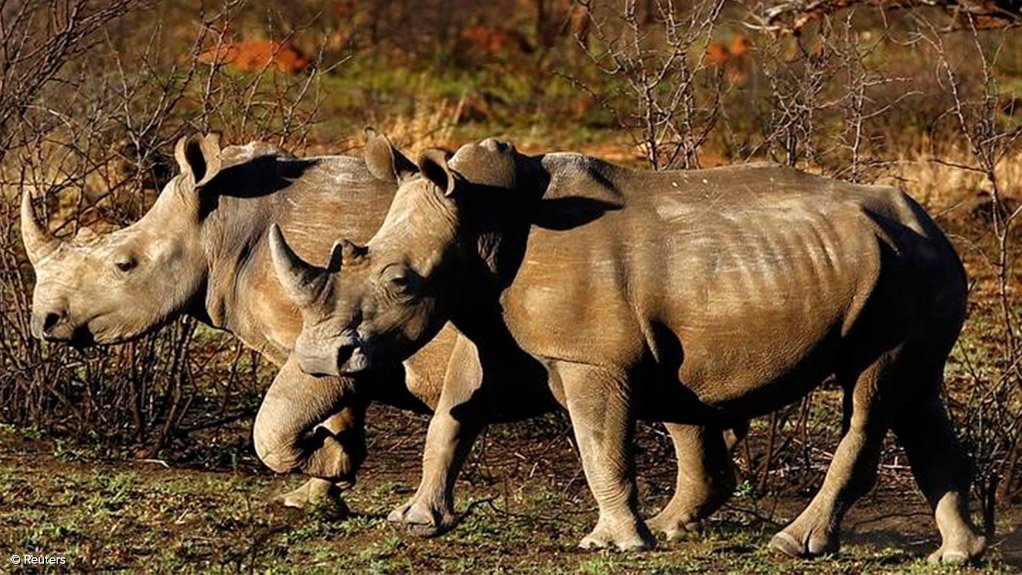Non-profit conservation organisation African Parks CEO Peter Fearnhead noted on Tuesday that it will be converting a captive-breeding operation into a rhino sanctuary, phasing out breeding and ensuring that all 2 000 rhino and their offspring will be rewilded to safe, secure areas across Africa over the next 10 years.
The organisation announced in a media briefing in Johannesburg that it had purchased the world’s largest captive rhino breeding operation.
Fearnhead noted that once rewilded, the animals would contribute to ecosystems by providing nutrient cycling, carbon storage and increasing tourism revenue.
African Parks manages 22 national parks in partnership with 12 countries in Africa and has become the new owner of Platinum Rhino to provide a conservation solution for these 2 000 rhinos, which represent up to 15% of the world’s remaining wild population.
Platinum Rhino was put up for auction in April as a result of financial distress, however, Fearnhead explained that the operation did not receive any bids, putting the rhinos at serious risk of poaching and fragmentation.
He said the organisation was approached by numerous concerned individuals from the conservation sector to provide a solution to prevent a potential conservation crisis, and to help secure the future for a species in decline.
He highlighted that the breeding programme would be phased out and the project would end once all the rhino were released into the wild.
“This is one of the largest continent-wide rewilding endeavours to occur for any species,” he added.
Fearnhead explained that government did not have enough money to ensure that conservation was paid for at the level that was necessary for it to succeed.
The white rhino, as a species, is under extreme pressure, especially in South Africa, because of poaching, however, with the dramatic rise in poaching for their horns in the illegal wildlife trade, their numbers have fallen to below 13 000 today.
“While the core of African Parks’ work is to effectively manage protected areas across Africa, creating safe and well-managed protected areas that benefit people and wildlife, the organisation has a proven track record in carrying out historic wildlife translocations and reintroductions, from moving 500 elephants across Malawi, to bringing rhino back to Rwanda, Malawi and most recently, the Democratic Republic of Congo,” Fearnhead explained.
He highlighted that the organisation would be working with multiple governments, funding partners and conservation organisations, committed to making this rewilding vision a reality.
EMAIL THIS ARTICLE SAVE THIS ARTICLE ARTICLE ENQUIRY
To subscribe email subscriptions@creamermedia.co.za or click here
To advertise email advertising@creamermedia.co.za or click here











